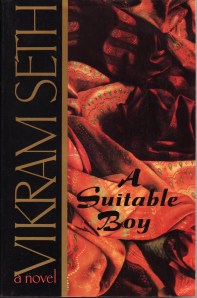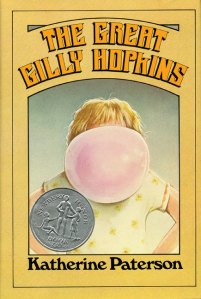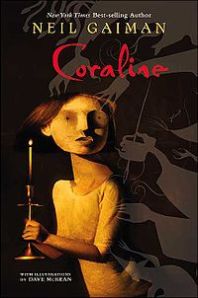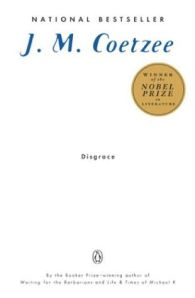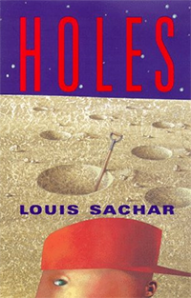#21. A Suitable Boy
I generally read short novels – no more than 300 pages – and short story collections. The last great novel I read (by “great” here, I refer simply to the length of the novel) was Ayn Rand’s Atlas Shrugged, about five years ago. So taking on this huge contemporary novel – 1366 pages! – was something of a departure for me. I started to read it as a joke, to see if there was an author who could hold my attention for so long, and I must say that I have been pleasantly surprised.
Vikram Seth’s A Suitable Boy is set in a newly post-colonial India, that is, the country has been independent for just over four years when the novel starts. The central drama is Mrs. Rupa Mehra’s search for a “suitable boy” for her youngest daughter, Lata. But other dramas sprout from the relationships that the Mehra family has with other individuals and families – relatives, in-laws, and potential in-laws. The novel is as large, the network of relationships it explores as sprawling as India itself. Nothing escapes Seth’s patient hand: politics, religions, poetry, philosophy, love, the caste system, adultery, attempted murder, riots; births (there is a particularly moving and convincing description of the labor leading up to and the eventual birth of Mrs. Rupa Mehra’s second granddaughter) and deaths. Through it all, Seth creates characters by whom you are amused, dismayed, or disgusted, and for whom you are anxious, sympathetic, and occasionally grateful – because from each of their stories is a worthwhile lesson to be learned. My favorite characters are the fiery, eccentric, and beautiful women, but there is something to be said for the men too, who are by turns ambitious, uppity, generous, and mad. In short, Seth, with his cinematic descriptions and spot-on dialogue creates a world and people so real that you are compelled to keep reading, wondering all the time: and then what happened?
I am amazed by Vikram Seth’s fortitude (what must it take to sit and patiently write a novel 1366 pages long?), and also by his talent – there is no mistaking the poetic quality of many of his sentences, or his persistent humor. But far and above this, I am amazed by a novel that has got me to care as much about its literariness as its plot. This is a rare thing indeed for me.
Five stars.
#20. The Namesake

I first started to read this book years ago, after I had devoured the author’s two short story collections: “Interpreter of Maladies” and “Unaccustomed Earth.” I abandoned it after the first two chapters, finding the pacing too slow, and the subject matter thick/ dreary.
I experienced the same weariness with the first few chapters when I picked up the book again a couple of days ago. But this time, I plodded past the first two chapters and was delighted to find that the novel began a swift ascent almost immediately afterwards. Suddenly, I was invested in Ashima and Ashoke and their son Gogol. I read quickly, staying up half the night to complete the first hundred pages.
The Namesake is a family saga. Ashoke, who is pursuing a PhD at MIT, returns home to Calcutta to find a wife. He and Ashima agree to get married after a meeting one afternoon at her parents’ flat. They return to America together to start a life; not long afterwards they have a son. Due to a series of unexpected events, they fail to give their son a “good name” in time – a formal name by which he will be known to the world – and instead register him by his pet name – Gogol – a name that is meant to be private, known only to family and friends of the family. It is a name that is special to Ashoke, symbolizing for him hope/ the chance at a new life. But as a teenager, Gogol finds his name ridiculous, becomes conflicted by the person he could be with his “good name” as opposed to his pet name. In some ways, this conflict mirrors the conflict that Ashima and Ashoke (and many immigrants like them) face when they realize that they must create new versions of themselves in America. It is a clever metaphor, but I found myself becoming irritated by Gogol’s discomfiture, his constant whining about his unique name. The solution to a bad name is simple – change it. No need for all the soul-searching etc. That struck me as a particularly American indulgence…but, perhaps that was the point? In any case, the novel records Gogol’s life minutely, where he went to school, what he studied, where he worked, who he loved. In the background, the lives of his parents and his sister play out also, and they are interesting to read.
Jhumpa’s great strength is in the writing itself, and not so much the story. Her sentences are simple, graceful. Her descriptions are so rich that a scene unfolds clearly in front of your eyes; after she described Ashima making croquettes, for example, I felt as though I could get up at any moment and make croquettes myself – so easily I could see myself standing in my own tiny kitchen, rolling the potato over the minced meat to form an egg-shape, dipping the potato-egg in beaten eggs, rolling this over breaded crumbs, stepping back slightly from the pan on the stove with heated oil, so that when I dropped the croquettes in, the oil would not leap up to burn me.
There is some truly wonderful writing in this book. But because so much of the book centers around the issue of a name – on the premise that a name that one does not appreciate can escalate an identity crisis – my enjoyment has been dimmed a great deal. It does not seem to me an issue worth crying over; there are more important things; a name does not determine who you are or what you will become – your life choices do that for you. (That my frustration/ impatience with Gogol is very real is a compliment of sorts; he seems to me a real person; I want to pull him from the pages and slap him.)
3.5 stars
#19. A Bit of Difference
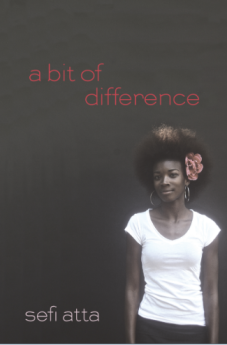
I haven’t read a more satisfying novel in such a long while. The plot is deceptively simple: a Nigerian woman who has been living and working in London for years decides to go to home to Lagos for a business trip. She is 39 and lonely; she hasn’t met a man that she has felt attracted to in a very long time. At her hotel in Lagos, she meets Wale – a man attractive enough to qualify for a one-night stand. She sleeps with him. The one-night stand is not without its consequences. This is the story at the heart of the book. But Sefi Atta is preoccupied with exploring the condition of the Nigerian immigrant or the Nigerian in London. She tells Deola’s story in wonderful minute detail. We experience her relationship with her family, her friends, and her work colleagues. We know intimately her thoughts and her feelings and we can see her world too – Atta’s descriptions are simple and clean, but sharply evocative. What’s more, her use of dialogue is fantastic. Several times Deola communicates with friends and family over the phone, but each time the conversations are immediate and believable. Even without conversational markers such as “he said” or “she said,” the reader knows exactly who is speaking and when because Atta’s voice details are distinctive. Sometimes I felt as though I could hear the characters speaking directly to me.
Reading Atta has been a miraculous experience for me. In my Creative Writing classes, I have been encouraged to show and not tell. Exposition is for journalists. The burden for a fiction writer is to describe a plausible world and to do it precisely. Prose that is dry and sparse is prose to be admired; it has a sort of angular beauty. But Atta manages to blur the distinction between “description” and “exposition.” She writes like a storyteller who does not want to forget a single detail, even if, sometimes, the details or the life histories of certain characters have to be told in short-form:
“Aunty Bisi is her mother’s younger sister, who spent holidays in their house when she was in university. The guestroom was hers. She taught Deola and her siblings songs like ‘Ruby Tuesday.’ Once in a while she saved them from punishments. Her mother paid for Aunty Bisi’s education and training as a chartered secretary. Aunty Bisi must have felt indebted from then on because she was always around, helping with Christmas parties, weddings, and other family functions.”
This is a whole life, compressed; this is blatant “telling.” And yet it works. Atta’s writing/ storytelling seems to me completely unselfconscious – almost intuitive – and so I have enjoyed it thoroughly. It has given me license to start to write the way she does – to simply tell a story in a way that feels natural and damn the technicalities.
I am going to miss the characters in this book. And I am impatient even now to read more of Sefi Atta’s work, but I am sure also that this is a book that I will return to in the future. It is too rich to read only once.
4 stars
Re-readable
I am officially a Sefi Atta fan.
#18. Sweet Tooth
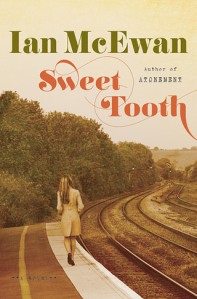
Impossible to write a comprehensive review of this book without giving away the ending. Impossible, for me, at least. I have a single coherent thought at the moment (I closed the book only minutes ago); it comes from one of McEwan’s characters: “There was, in my view, an unwritten contract with the reader that the writer must honor. No single element of an imagined world or any of its characters should be allowed to dissolve on authorial whim. The invented had to be as solid and as self-consistent as the actual. This was a contract founded on mutual trust.” These lines stuck with me when I first read them; I took a minute to highlight them in my favorite purple ink. Now, after closing the book, their importance has come back to taunt me. With his last chapter, McEwan violates the very reader-writer contract that he so brilliantly describes – really, I can see him smirking as he types up the words, halfway through the book, knowing full well what is coming at the end – and I am left feeling – in a word – ill-used. But it is a master stroke; Sweet Tooth has an ending that you do not see coming at all.
Serena Frome (rhymes with plume) is a twenty-something year old who works for MI5. She is given a low-level assignment – to recruit an author, whom the Security Service will fund. The plan is to influence public opinion by determining which books get read and which don’t. The operation is called Sweet Tooth.
Serena is beautiful, of course. She falls for the author she is assigned, of course. But this is where the plot ceases to be formulaic. Before Serena recruits the author, she must first read his work. We are treated to summaries of the author’s short stories – all of them published works of McEwan’s, neatly distilled into a few, quick paragraphs. We wonder, along with Serena, how much she can learn about the author from his work. I found these passages especially delightful, because I have wondered oftentimes what my stories say about me or what my favorite authors’ stories say about them. There is an extraordinary chapter on probability – extraordinary, for me, because I have a background in both Math and English, and when Serena and Tom (the author) begin to argue about probability, I can sympathize with both their logics (Serena’s that of a Mathematician; Tom’s that of a writer). It was a wonderful case of discovering a character(s) who could speak with my voice.
Several story lines run alongside each other in this book: romance, espionage, politics, literary stuff, etc. This is not by any means an easy book. But McEwan uses old tricks: Serena reminded me, occasionally, of Atonement’s narrator, Briony – at the beginning of the book, she is sixty or so and is merely recounting the experiences of her youth; the narrative is sprinkled with letters (this is the case, also, in Atonement); the book’s overarching theme has to do with writing; finally, the surprise twist at the end, that authorial sleight-of-hand, had echoes of Atonement’s ending all over it. I adored Atonement. Placed alongside it, Sweet Tooth falls short. The passages, for one, are not nearly as beautiful. However, judged on its own merit, Sweet Tooth is the work of a master. There are few writers who can get inside of a character’s mind or write as sparsely and precisely as McEwan. There are also very few writers who can scrutinize their own work so objectively (remember, Tom’s stories are actually McEwan’s early work, and Tom, himself, looks and sounds a lot like McEwan). In short, I was impressed by this book, but not completely blown away by it.
3.8 stars
#17. The Great Gilly Hopkins
Gilly Hopkins is a character with spunk. You know this within the first few lines of the book. She’s daring, bold, and unrepentant – the kind of girl most people would view with envy, admiration or fear. She’s also a child who has been in the foster care system for eight years. She has learned the hard way not to grow attached to people. Worse, she has perfected the art of acting out – to keep people away.
When Gilly first arrives at Maime Trotter’s house in Maryland, she gets up to all of her old tricks (these are very fun to read), hoping to show the people she meets that she’s the one with all the power and they can’t affect her. She also determines that she will find her way to her real mother in California by any means possible. There are some very entertaining consequences. By the end of the book, however, Gilly has learned her lessons and opened her heart up to the people she first referred to as “weird,” “lardy,” and “retarded.”
Only one aspect of the book affected me really negatively – the fact that Gilly made several blatantly racial remarks and never took them back. When she is asked to lead an old colored blind man, for example, she shrinks back and responds, “I never touched one of those people in my life.” Half of the kids in her new class are black and Gilly refers to them as “low-class idiots.” She writes poetry filled with racial slurs and slips the offensive card into her black teacher’s textbook. As I encountered each of these racial incidents, I tried to justify their presence by telling myself that the book was set in the late seventies, so the author was merely “holding a mirror up to society.” Perhaps Gilly was to learn an obvious lesson at the end – that the color of a person’s skin did not determine who they were or something along those lines. But this never happens. It is obvious that Gilly grows to love the people she had discriminated against at first but there are no words that effectively take back her offensive remarks. In any other book, this lack of explicit detail could be viewed as a good thing – “show, don’t tell” – but in a children’s book, it is a shortcoming. Subtleties are often lost on children, and so I found myself asking: are these the kind of sentiments that I would like my child exposed to? My answer was definitely no. Not unless it was in a classroom setting with a teacher who could facilitate a candid conversation about race. And then I felt some genuine disappointment. The book is very well-written, funny, with wonderful pacing and a realistic ending. I would even consider it re-readable – except for this one fatal flaw. Disappointment tastes bitter – it has changed my original 4.5 star rating into a 3 star one.
#16. Coraline
I had three things in mind when I picked up this book: (1) I wanted to read a Neil Gaiman, (2) there was a movie adaptation, so it was possibly a story worth looking into, and (3) it was a slim volume – it would only take me a couple of hours to read.
I have to say that I was a little disappointed; I had expected the book to be a little scary, scary for adults, that is, and not just eight-year olds (that goes to show that you should always glance at the back of the book – the part where it says what age group the book is appropriate for).
Still, the book had an interesting story: a girl finds a door into a world that is like her world, but not like her world. Her “other” parents are long, thin and white, with button eyes, and they have much more time for her than her real parents. There are also many things to entertain her in the alternate world, such as toys that can actually move; her room has interesting colors too – lime green and pink. But this “other” world has a bit of the sinister about it. Her “other” mother is evil incarnate, and evil wants the little girl’s soul and her parents’ souls too. Coraline – for that is the little girl’s name – must find inventive ways to triumph over evil. She does, of course.
Neil Gaiman is funny and it shows up unexpectedly – peeking out of seemingly ordinary sentences, daring you not to laugh. The book is supposed to be “dark” and “magical” – certainly there are lots of shadows and things with shiny red eyes – but it was mostly funny and cute for me. Overall, a good book to read to a child.
3 stars
#15. Spanking Shakespeare
Lewd and funny. Not nearly as hilarious as Sherman Alexie’s The Absolutely True Diary of a Part-Time Indian, but funny nonetheless. I mention Alexie because this book was recommended to me based on my interest in The Absolutely True Diary of a Part-Time Indian.
Shakespeare Shapiro is a senior at Hemingway High school. Each senior is required to write a memoir in their final year; it’s what the school is famous for, because many former finalists for the memoir award have been published by a major company. Shakespeare, a self-deprecating humorist, decides to make his memoir worthy of a prize – maybe it will win him some attention from girls, maybe people will finally treat him with respect, maybe he’ll get a date to the prom.
The book is written as Shakespeare’s memoir, interspersed with a first person narration of his senior year as it unfolds.
Laugh out loud funny in parts, and convincingly portrayed, this was not a bad book. Still, it is not a book I’d seriously consider re-reading.
2 stars
#14. Disgrace
I had no idea that J.M. Coetzee was a poet until I picked up this book. These are not sentences beautiful because they contain or express heightened feelings – rather, they are sparse, sometimes dry sentences that are stunning because they are precise, exact. They are stunning also because, read together, they achieve a certain lyrical perfection.
Professor David Lurie is a fifty-two year old man who has married twice and been divorced twice. He has more desire than he has passion, so he sleeps with many women, mostly prostitutes, to quiet the longing. Before long, he loses his job because the authorities discover that he has been sleeping with one of his students. He retires to his daughter’s smallholding in the country to “gather himself.” During his visit, the two of them are the victims of a theft/ hate crime, which has tragic consequences. Prof. Lurie and his daughter, Lucy, must deal with the aftermath.
This book is set in South Africa so, of course, Coetzee must deal with the issue of racism. His approach is admirable – it is delicate, while still remaining realistic – that is, there are no happy endings, but there are no gross misrepresentations either. At the end of the book, the reader is able to glimpse some hope for both Prof. Lurie and Lucy, although that hope is not of the glittery kind.
A lovely, thought-provoking read. I will be looking up more of J.M. Coetzee’s work.
4 stars
#13. Bridge to Terabithia
The first time I watched Bridge to Terabithia, I wept. Not right away, not in front of my family who would scoff (although no one seemed to be able to look right at the television screen during the last twenty minutes). I wept in the relative safety of my room – great heaving sobs that did not make me feel better. Why? Why? I kept repeating. And my sister wandered in and said to me, “I told you not to watch that movie. That is the saddest book I have ever read.”
Now I watched Bridge to Terabithia years and years ago, but the story line was still fresh in my mind when I picked up the book a few hours ago.
Jess Oliver Aarons is a little boy who has four sisters and not very many friends. He spends all summer running in the field near his house so that he can be the fastest runner in the fifth grade. On the first day of school, however, an unusual girl named Leslie Burke (who has just moved next door to Jess) beats Jess and every other boy in the race to win the title of fastest runner. Although it seems unlikely at first, Jess and Leslie become really good friends and in time create a magical kingdom in the woods close to where they live. Leslie calls the kingdom Terabithia, and in Terabithia, the two have many wonderful adventures, vanquishing their foes and receiving love from their imaginary subjects. Jess has never been happier; he finds himself growing bolder than he’s ever been. Leslie has found a true friend. And then something tragic happens.
I can’t tell if you’re reading this and already know what the tragedy is – but I can tell you what reading the book (while knowing what was about to happen) felt like. On the plus side, whenever the author described a pivotal scene, that part of the movie flashed through my mind’s eye, enhancing my reading of that paragraph or chapter. On the negative side, whenever something sad was about to happen, several feelings built up in my chest: part-dread, part-tension and part-hope – maybe the movie had taken a few liberties with the actual story line, maybe!
Unfortunately, the movie was quite faithful to the book. As I came to the final chapters, I found myself crying again – not dramatically, this time, but with a quiet, adult resignation.
Katherine Paterson’s narrative style is easy, graceful. Two things are clear from the beginning: the story was written for a young audience and it was written a long time ago (judging from the old expressions sprinkled all over the dialogue). Still, the writing is funny and honest and it is not afraid to treat little children’s feelings seriously. Even better, the book does not end on a tragic note. There is evidence of the beginning of healing. There are also a few glimpses of hope.
This is a powerful story, made even more powerful by the fact that it was based on a true story – that of the author’s son, David, and his best friend, Lisa.
Five stars – for the simple reason that I cannot remember the last time a book made me cry.
#12. Holes
Oh, delight! I have read quite a few good books recently, but none of them has made me want to turn immediately from the last page to the first page. And there is a smile twitching at my lips – one that I cannot repress.
Stanley Yelnats is cursed with bad luck, as his whole family has been for over a hundred years. He ends up at a prison camp for boys (for a crime he did not commit), where he is required to dig a hole five feet deep and five feet cross in every direction, every day, in order to “build character.” Is digging holes really character building? What are the boys actually digging for? Is the Yelnats family really cursed? Sachar manages to answer these questions and indeed to fill every hole that emerges in the story, with good humor and very, very engaging prose – I could hear myself reading the story out loud, even with my mouth closed. This book was a delight. An absolute, absolute delight. Re-readable.
P.S. I read this book while riding the midnight bus from Baltimore to New York. I arrived just as I finished the last few lines, feeling amazingly refreshed – at 3:20 a.m.
4 stars
